Are you looking to learn a new skill while enjoying the benefits of fresh produce? Gardening can offer just that! As a beginner, it’s important to start small and grow what you love to eat. With beginner garden ideas, you can develop your gardening skills gradually and end up with a bountiful harvest.
Choosing the right spot for your garden is crucial. Sunlight accessibility is key, so make sure to pick a spot with ample sunlight. Additionally, planning your garden layout and using nutrient-rich soil are also essential for successful gardening.
Key Takeaways:
- Start small and grow vegetables you love to eat.
- Choose a spot with lots of sunlight and ample water access.
- Plan your garden layout and use nutrient-rich soil.
Getting Started: Start Small and Grow What You Love
Starting a garden can be overwhelming, but with these easy gardening ideas, beginners can enjoy a rewarding experience by starting small and growing vegetables they love. Choosing vegetables that are easy to grow and align with your preferences will help you stay motivated and enjoy the process.
Lettuce, Swiss chard, beans, potatoes, zucchini, tomatoes, carrots, onions, pumpkins, and beets are some of the easiest vegetables for beginners to grow. These vegetables do not require extensive care and maintenance, and they grow quickly, allowing you to enjoy the rewards of your gardening efforts with minimal stress.
It’s also recommended to start with a small space, such as a raised bed, container, or small patch of land. This will help you manage your garden more effectively and gain confidence before expanding to a larger area.
Choose a sunny spot with easy access to water. Vegetables require ample sunlight to grow, so it’s important to choose a suitable spot with at least six hours of sunlight per day. Easy access to water is also crucial for a successful garden, so consider installing an irrigation system or using a watering can to ensure consistent hydration.
Plan your garden layout based on row cropping or intensive cropping. Row cropping involves planting vegetables in rows with spaces between them for easy access, while intensive cropping involves planting vegetables close together to maximize space and increase yields. Determine which method works best for your space and preferences.
Starting plants in rich soil is essential for a successful harvest. Use high-quality soil or compost to ensure your plants have the nutrients they need to thrive. Consider using organic fertilizers or natural soil amendments like bone meal or blood meal to further enrich your soil.
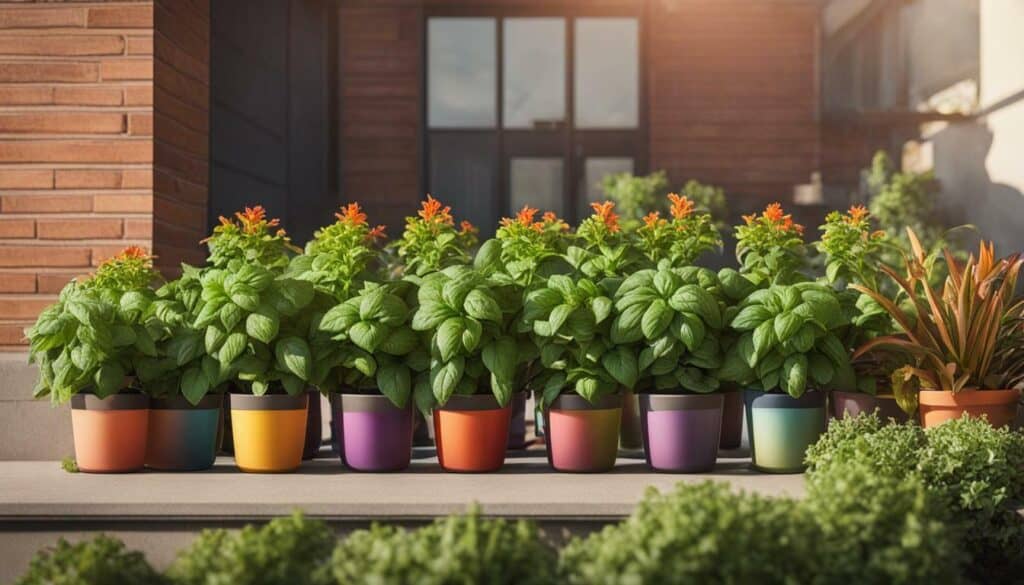
By following these tips, beginners can enjoy the rewards of their own vegetable garden. Start small, grow what you love, and remember that gardening is a process that requires patience and persistence. With time and practice, you can expand your skills and enjoy the benefits of a flourishing garden.
Find the Perfect Spot: Sunlight is Key
When it comes to outdoor gardening ideas for beginners, finding the perfect spot with plenty of sunlight is essential for your plants’ growth and success. Sunlight is vital for the process of photosynthesis, which is how plants create energy and produce food. Therefore, it is necessary to choose a location that receives at least 6 or more hours of direct sunlight each day.
Before choosing a spot, consider the space you have available and the amount of sunlight your garden will receive. Note that certain vegetables require more sunlight than others, so make sure to choose vegetables that match the amount of sunlight available in your chosen location. Lettuce is a great vegetable to grow for beginners, as it tolerates shade well and can keep growing after being cut. Swiss chard is another suitable option, as it is a leafy green vegetable that provides a continuous harvest.
Beans are not only easy to grow, but they also give nutrients back to the soil. Potatoes can be grown from old potatoes that have sprouted, making them a simple and rewarding vegetable to grow. Zucchini is another easy vegetable to start from seed and requires little upkeep, and tomatoes are a must-have in any garden, although they require at least 8 hours of sun a day.
Carrots and onions are low-maintenance vegetables that can be harvested in late July for baby carrots or stored in the basement for use throughout the winter. Pumpkins are easy to start from seed and can provide a fun addition to your garden, especially for Halloween. Beets are also easy to grow and can be harvested for both their leafy greens and the beet itself.
It is crucial to start small and choose vegetables that you and your family enjoy eating. Keep in mind the space you have available and the amount of sunlight your garden will receive. Plan your garden layout accordingly, whether it be through row cropping or intensive cropping. Finally, start your plants in nutrient-rich soil to ensure a successful harvest.
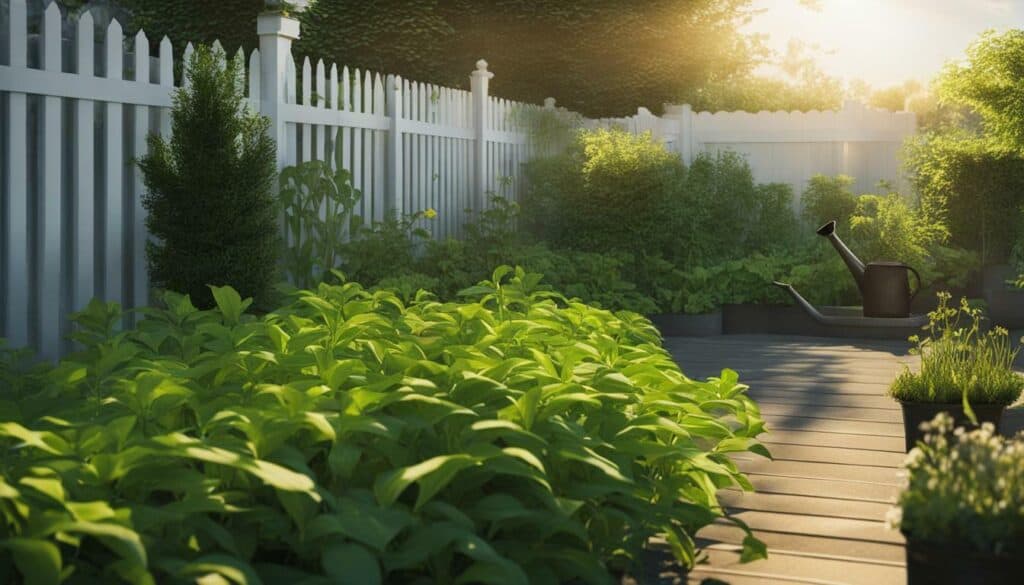
Plan Your Garden Layout
To ensure a successful gardening journey, it’s crucial to plan your garden layout with beginner vegetable garden ideas that are low-maintenance yet productive. As a beginner, it’s best to start with a small space to avoid feeling overwhelmed. A 6×6 feet area is ideal for a beginner garden. When choosing vegetables to grow, pick ones that you love to eat to ensure your hard work pays off with delicious produce.
It’s important to consider the size and care needs of each variety before selecting the vegetables to grow. Opt for vegetables that suit your space and gardening skills. You can go for row cropping or intensive cropping when planning your garden layout. Row cropping involves planting in rows with wide spaces in between for easy maintenance and access. Intensive cropping, on the other hand, involves planting vegetables closely together to maximize space. Both methods have their benefits, so choose the one that suits your needs and available space.
Determining the best spot for your garden is crucial for successful gardening. Ensure your garden receives at least 6 to 8 hours of direct sunlight a day and is near a water source for easy watering. Start your plants in nutrient-rich soil to ensure a bountiful harvest. Adding compost to nourish the soil and regularly watering your plants will help them thrive.
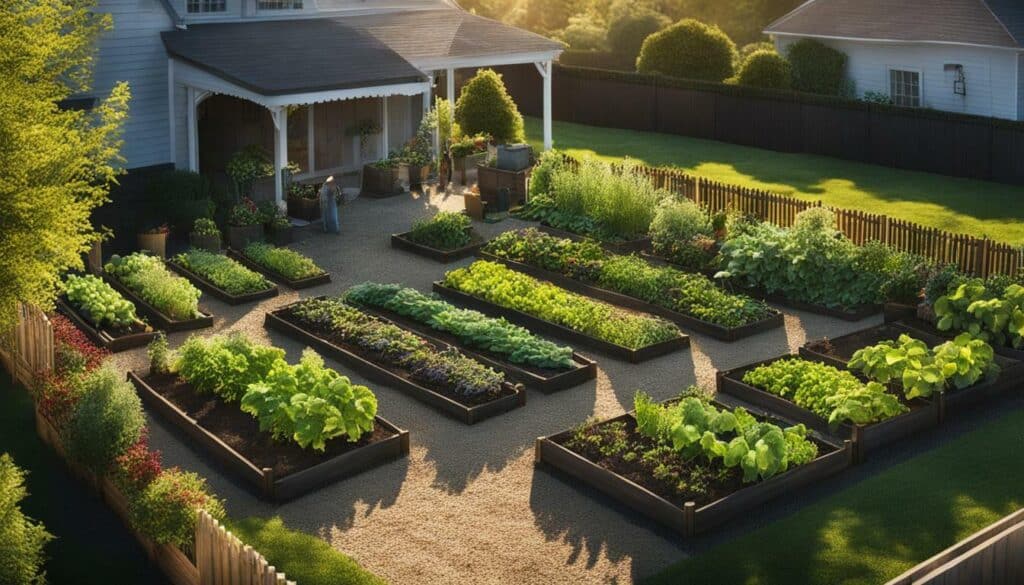
With these beginner vegetable garden ideas, you’ll be able to create a garden layout that is low-maintenance yet productive. Planning your garden layout is an exciting step towards growing your own fresh produce.
Easy Vegetables for Beginners to Grow
As a beginner, it’s wise to start with easy vegetables for beginners to grow, including lettuce, Swiss chard, beans, potatoes, zucchini, tomatoes, carrots, onions, pumpkins, and beets. Lettuce is a great option for beginners as it tolerates shade well and can be continuously harvested throughout the summer, making it perfect for salads and sandwiches. Swiss chard is another beginner-friendly vegetable that is productive and versatile in cooking, with the colorful stems adding a pop of color to any dish. Beans, such as green beans or snap beans, are a favorite among beginners as they provide nutrients to the soil and yield a good amount of produce.
Potatoes are easy to grow, especially if you have old potatoes with sprouts. Simply plant them in the ground and wait for them to grow. Zucchini is another simple vegetable to start from seed and requires minimal maintenance, making it perfect for busy beginners. Tomatoes are a popular choice, although they require consistent watering and ample sunlight. Carrots are low-maintenance vegetables that can be harvested in late July or after the first frost, and are great for snacking on raw or cooking in stews and soups. Onions can be grown from sets and harvested once the tops have dried up, with the added bonus of being able to use the green tops for seasoning. Pumpkins are fun to grow from seed and can be used for Halloween decorations or processing into pumpkin puree. Beets are easy to grow and both the greens and the beet itself can be eaten, providing double the harvest.
It’s important to start small with a beginner’s vegetable garden, focusing on a few easy-to-grow vegetables at first. Location is crucial, with vegetables requiring at least 6 to 8 hours of sunlight per day. Planning the layout of the garden is also important, with options for row cropping or intensive cropping. It’s essential to start plants in nutrient-rich soil for the best results. By choosing easy-to-grow vegetables and following these simple tips, beginners can have a successful vegetable garden and enjoy the rewards of homegrown produce.
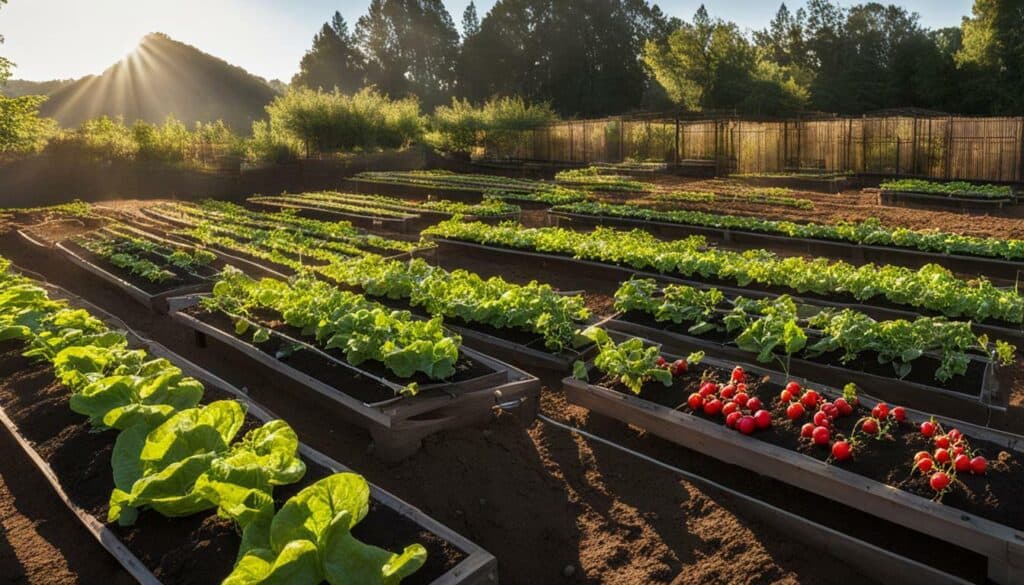
Prepare Your Soil for Success
One of the essential beginner garden ideas is to ensure your soil is nutrient-rich and ready for planting. This is critical to the success of your vegetable garden. Before you begin, it’s important to choose a suitable location that gets at least six hours of sunlight a day. Once you’ve found the right spot, it’s time to start preparing the soil.
Adding compost to your soil is a great way to improve its quality. Compost is made up of organic matter that has decomposed over time and is rich in nutrients that plants need to grow. You can make your own compost by collecting grass clippings, leaves, and kitchen scraps, or you can purchase it from a garden center.
Some of the easiest vegetables to grow for beginner gardeners are lettuce, Swiss chard, beans, potatoes, zucchini, tomatoes, carrots, onions, pumpkins, and beets. These vegetables can be planted in rows or in intensive cropping patterns. Row cropping involves planting seeds in a straight line, while intensive cropping involves planting seeds in a specific pattern to maximize space.
When planning the layout of your vegetable garden, it’s important to start small and grow what you love to eat. This will help you to maintain your garden and keep you motivated throughout the growing season. Once you’ve decided on the vegetables you want to grow, it’s time to start preparing your soil.
Start by removing any weeds or debris from the area where you will be planting. Then, loosen the soil with a garden fork or tiller. Once the soil is loose, add compost and mix it in well. This will help to improve the soil’s texture and add nutrients that your plants need to grow.
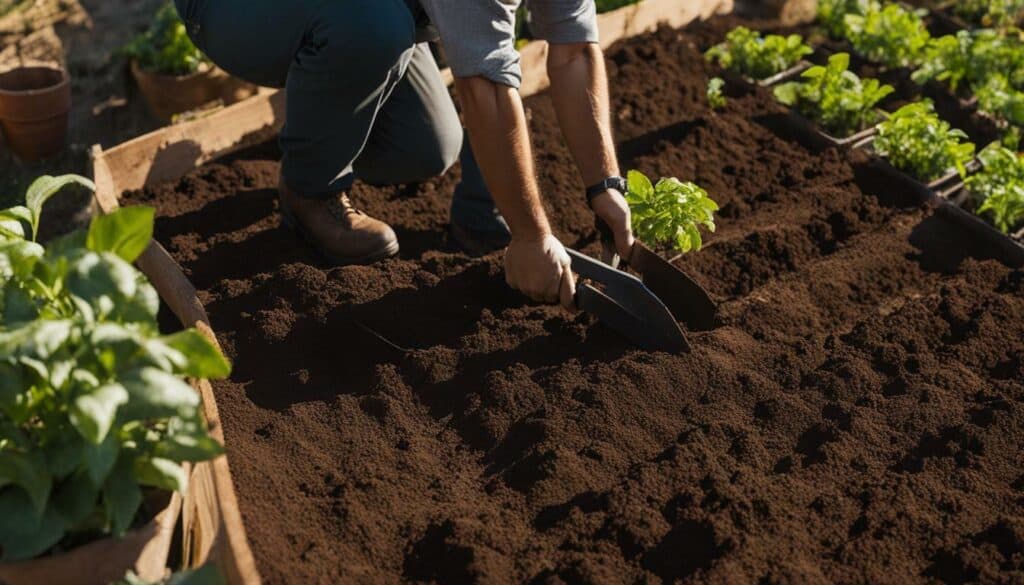
Starting your plants in nutrient-rich soil will help to ensure a successful harvest. By taking the time to prepare your soil, you’ll be setting yourself up for a garden that thrives. Follow these beginner garden ideas and get your hands dirty – your taste buds will thank you!
The Watering Game: Keeping Your Garden Hydrated
A crucial aspect of successful gardening is to water your garden regularly, keeping your plants hydrated and thriving. As a beginner gardener, it’s important to choose vegetables that require regular watering and can tolerate shade, such as lettuce and Swiss chard. Beans and potatoes are also easy to grow and can provide excellent yields.
Zucchini and tomatoes require a bit more care, but they are still great choices for a beginner gardener. Carrots, onions, pumpkins, and beets are also low-maintenance vegetables that can be easily grown and harvested.
Starting with a small space is important for beginners so that they can learn the basics without feeling overwhelmed. Choose vegetables that you love to eat and consider the productivity of each variety. Some vegetables, like tomatoes and peppers, provide a continuous harvest throughout the season, while others, like carrots and corn, need to be replanted.
Choosing the right spot for your garden is crucial. Most vegetables need at least 6 to 8 hours of direct sunlight a day, so make sure to pick a location that receives ample sunlight. It’s also important to have convenient access to water, as your plants will need to be watered frequently, especially in the early stages.
Planning your vegetable garden layout is also an important step to take into account. You can choose between row cropping and intensive cropping, both with their own advantages. You should choose the one that suits your garden best.
Lastly, it’s important to start your plants in rich soil. Adding compost to your soil can help improve its quality and provide nutrients for your plants.
By following these tips and watering your garden regularly, you can ensure that your garden stays hydrated and can have a successful growing season. Enjoy your gardening journey!
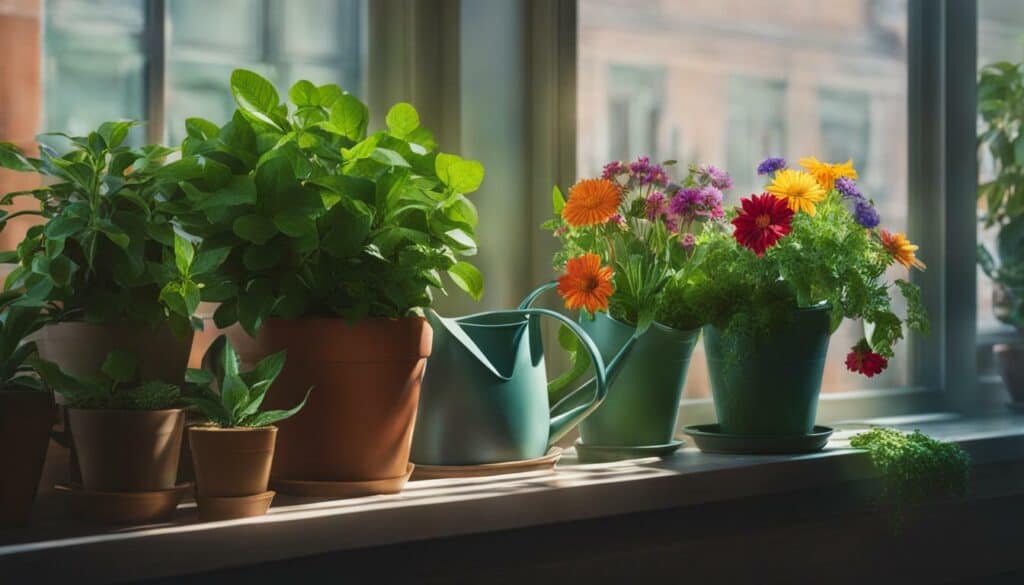
Harvesting the Fruits of Your Labor
After patiently nurturing your plants, it’s time to reap the rewards by learning when and how to harvest your vegetables in your beginner garden. As a beginner, it’s important to start small with easy-to-grow vegetables like lettuce, Swiss chard, and beans before moving on to more challenging crops.
When the time comes to harvest, make sure you have the proper tools on hand, such as garden shears or a small knife. Check each vegetable regularly and harvest when they are ripe, but not too late. Vegetables like tomatoes and zucchini should be picked when they are still firm, while vegetables like lettuce and carrots should be harvested when they are mature.
It’s also important to properly store your harvested vegetables to maintain their quality and freshness. Some vegetables, like onions and pumpkins, can be stored in a cool, dry place for months, while others, like lettuce and tomatoes, should be eaten or used within a few days of harvesting.
Overall, the key to successful harvesting in your beginner vegetable garden is to start small and choose vegetables that are easy to grow and that you enjoy eating. By selecting the right plants and harvesting at the proper time, you’ll be well on your way to enjoying the fruits of your labor in no time.
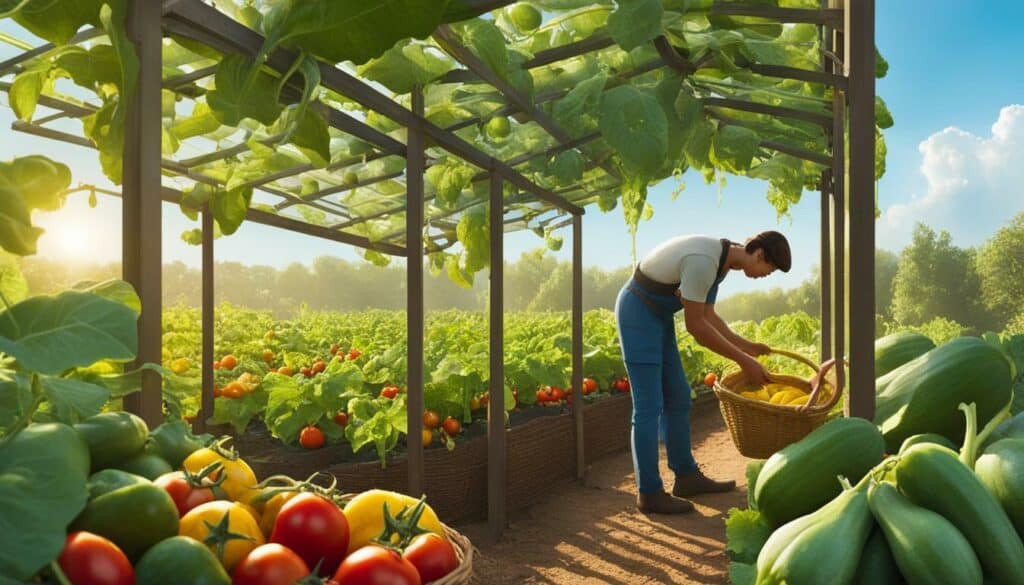
Troubleshooting Common Garden Problems
Even with the best beginner garden ideas, you may face common garden problems along the way, but fret not, as we have effective troubleshooting tips to help you overcome them. The following are some of the most common garden problems and the solutions to fix them:
Pests
Pests such as aphids, caterpillars, and snails can wreak havoc on your vegetable garden. The first step in keeping pests at bay is to monitor your garden regularly. Remove any infected plants or leaves and spray your plants with an organic insecticide if necessary. You can also plant certain companion plants such as marigolds to repel insects.
Diseases
Diseases such as powdery mildew, blight, and root rot can spread quickly and damage your plants. To prevent diseases, ensure that your plants have enough space between them and avoid over-watering. If you notice any signs of disease, remove the infected plants or leaves immediately and discard them to prevent further spread.
Soil Problems
Poor soil quality can lead to weak and stunted plants. Test your soil regularly to ensure that there are enough nutrients for your plants to thrive. If your soil is lacking in nutrients, add compost or organic fertilizers to improve soil quality. If your soil is too compact, loosen it by adding sand or perlite.
Watering Issues
Over-watering or under-watering your plants can lead to root rot or drought stress. Water your plants regularly and ensure that they have adequate drainage. Mulching can also help retain moisture and regulate soil temperature.
Weather
Extreme weather conditions such as frost, heatwaves, and heavy rainfall can damage your plants. Protect your plants by covering them with frost cloth or shade cloth during extreme weather conditions. Planting cold-tolerant or heat-tolerant varieties can also help prevent weather-related damage.
By following these troubleshooting tips, beginner gardeners can maintain a healthy and thriving vegetable garden. Don’t be discouraged by common garden problems, as they can be easily overcome with the right knowledge and techniques.
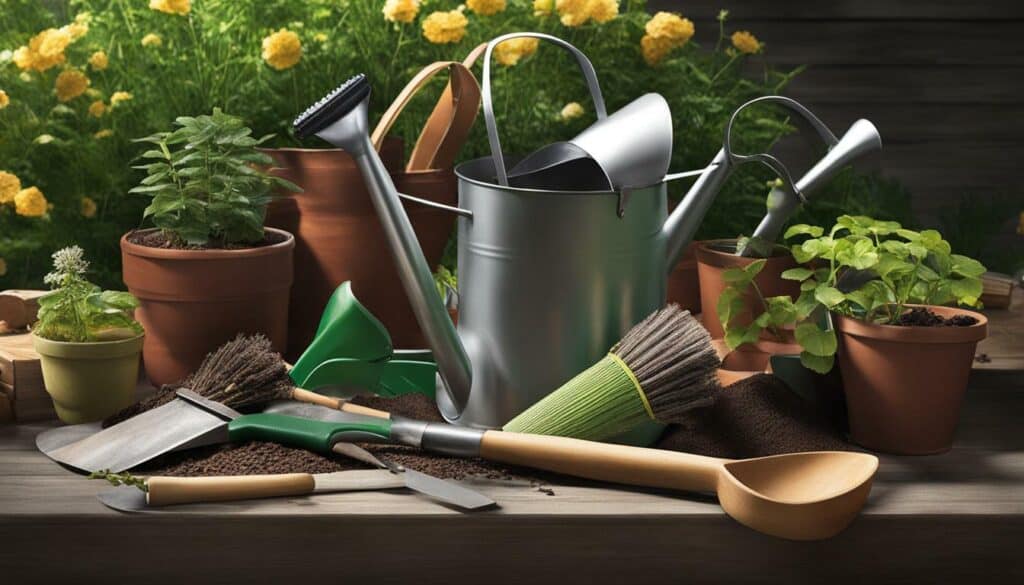
Expand Your Skills: Beyond the Basics
Once you’ve mastered the basics of gardening, it’s time to expand your skills and delve into more advanced techniques and ideas. One way to do this is by experimenting with different vegetables and crops. For example, heirloom varieties can add unique flavor and beauty to your garden. You can also learn to save seeds for future planting.
Another way to expand your skills is by exploring alternative gardening methods, such as vertical gardening, container gardening, or hydroponics. These techniques offer more flexibility and can be suitable for small spaces or apartment balconies.
Additionally, you can learn about composting to improve soil fertility and reduce waste. Composting also promotes sustainability and is a great way to use kitchen scraps and other organic matter.
Finally, you can explore other areas of gardening, such as landscaping and ornamental gardening. These areas can add aesthetic value to your garden and provide additional learning opportunities.
Expanding your gardening skills can be an exciting journey. It allows you to try new things and be creative while enjoying the rewards of your efforts. Remember to start small and be patient as you learn and grow as a gardener.
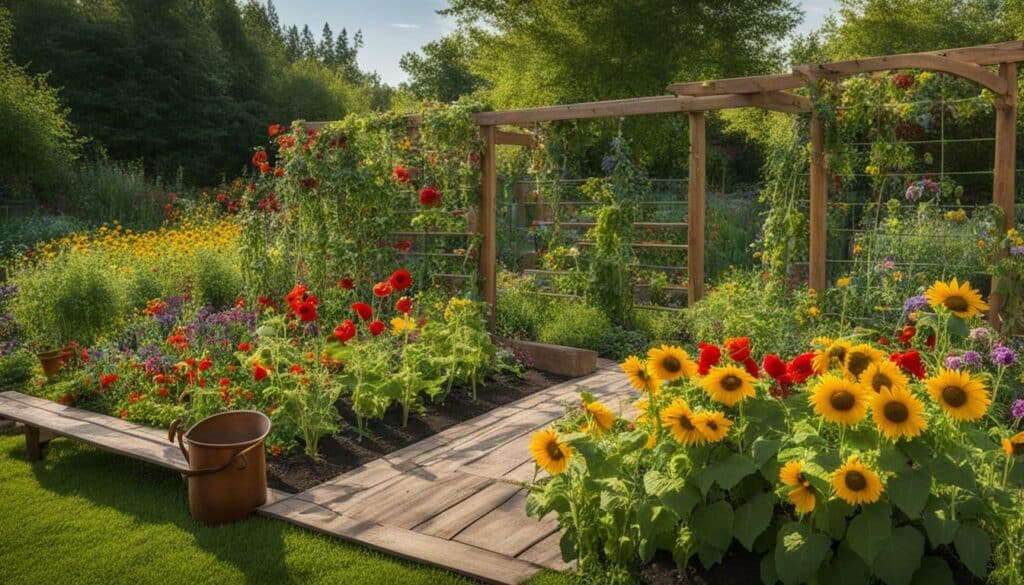
“Gardening adds years to your life and life to your years.” – Unknown
Embrace the Joy of Gardening
Gardening is more than just a hobby; it’s a way to embrace the joy of nurturing and witnessing the beauty and growth of your own creations. As a beginner gardener, you may feel overwhelmed at first, but don’t worry, starting small is key. Choose vegetables that you love to eat and start with a small space, such as a patio or balcony.
When selecting a spot for your garden, make sure that it receives plenty of sunlight and is easily accessible to water. Whether you prefer to use row cropping or intensive cropping methods, plan your vegetable garden layout to maximize space and yield. Remember to start your plants in rich soil to ensure a healthy and bountiful harvest.
Don’t be discouraged if you lack experience. There are many easy-to-grow vegetables suitable for beginners, such as lettuce, Swiss chard, beans, potatoes, zucchini, tomatoes, carrots, onions, pumpkins, and beets. By following simple gardening tips and, with time, you will enjoy the rewards of growing your own fresh and delicious produce.
The joy of gardening is not just in the end result, but in the journey of nurturing and connecting with the natural world. Take time to enjoy the simple pleasures of weeding, watering, and watching your plants grow. You’ll be amazed at how therapeutic and rewarding gardening can be.
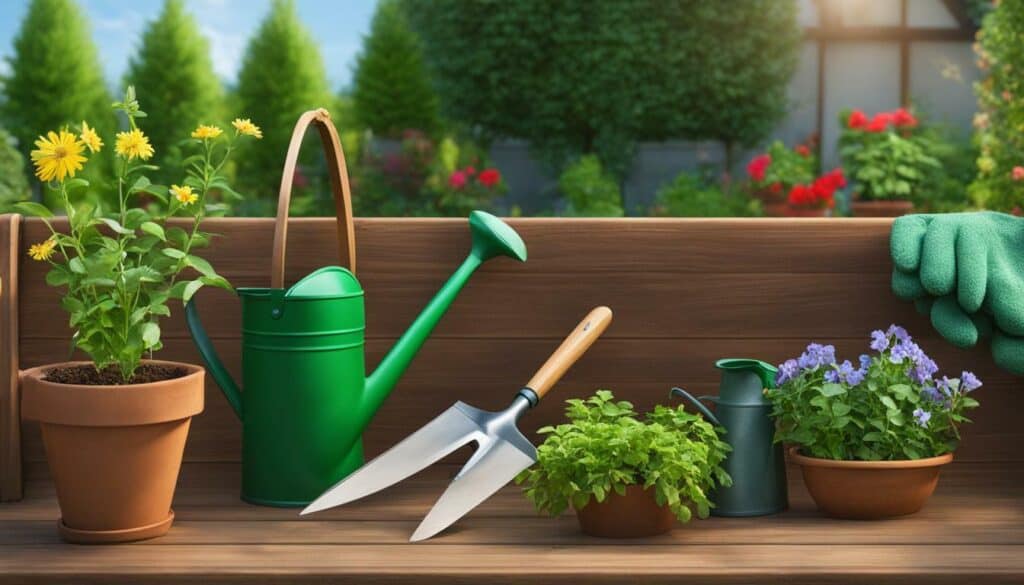
Whether you have a small balcony or a large backyard, gardening is a wonderful way to connect with nature and nourish your body and soul. By following these simple beginner garden ideas and tips, you can create a thriving garden and enjoy the joy of growing your own food.
Conclusion: Grow and Flourish with Beginner Garden Ideas
By following these beginner garden ideas, you can successfully grow your own vegetables, foster new skills, and create a blooming backyard oasis with ease. Remember to start small and choose vegetables that you enjoy eating. Some vegetables, such as lettuce, Swiss chard, beans, potatoes, zucchini, tomatoes, carrots, onions, pumpkins, and beets, are easy to grow and require minimal maintenance.
Choose a location with ample sunlight and easy access to water. When planning your garden layout, consider either row cropping or intensive cropping methods. Both have their advantages depending on the size of your space and the vegetables you choose to grow.
Finally, start with nutrient-rich soil for the best harvest. It is important to regularly water your garden and harvest your vegetables at the right time. With these tips and ideas, you can watch your garden flourish and enjoy the rewards of growing your own vegetables.
Expand Your Skills: Beyond the Basics
As you become more experienced, don’t be afraid to expand your skills by exploring more advanced gardening techniques. Consider experimenting with companion planting, crop rotation, and creating a compost pile to enrich your soil.
Embrace the Joy of Gardening
Gardening is not only a great way to provide fresh vegetables for your family, but it can also bring a sense of relaxation and accomplishment. Take the time to enjoy the beauty of your garden and the fruits of your labor. Whether you have a small space or a large backyard, growing your own vegetables is a rewarding experience that anyone can enjoy.
So, don’t wait any longer. Start planning your beginner garden today and watch it flourish! Happy gardening!
Can I Learn Beginner Gardening Skills from the Garden Ideas Provided?
Yes, you can learn beginner gardening skills from the garden ideas provided in a gardening book for beginners. These books offer a wealth of knowledge and practical tips on starting your garden, selecting plants, soil preparation, watering techniques, and more. By following the suggestions and step-by-step instructions, you can easily grasp the fundamentals and become a confident beginner gardener.
What are the Basic Gardening Skills I Need to Start with Tub Gardening?
To master tub gardening basics, there are a few key skills you need to start with. Firstly, understand the appropriate soil and drainage requirements for tub gardening. Next, familiarize yourself with choosing the right plants and their specific care needs. Additionally, knowing how to properly water and fertilize your plants, and regularly monitoring for pests and diseases will help you succeed in tub gardening. Finally, learn about pruning techniques to maintain healthy and attractive plants in your tub garden.
FAQ
Q: What are some easy vegetables for beginners to grow?
A: Some easy vegetables for beginners to grow include lettuce, Swiss chard, beans, potatoes, zucchini, tomatoes, carrots, onions, pumpkins, and beets.
Q: What is the importance of starting with rich soil?
A: Starting with rich soil provides the necessary nutrients for healthy plant growth and increases the chances of a successful garden.
Q: How often should I water my beginner garden?
A: It’s important to water your garden regularly, ensuring that the soil remains moist but not waterlogged. The frequency will depend on factors such as weather conditions and the moisture needs of your plants.
Q: How do I know when to harvest my vegetables?
A: Each vegetable has specific signs to indicate when it’s ready for harvest. Generally, you can check for mature size, color, and firmness to determine if your vegetables are ripe for picking.
Q: What should I do if I encounter common garden problems?
A: If you encounter common garden problems such as pests, diseases, or nutrient deficiencies, there are various troubleshooting tips and solutions available to help you address and overcome these issues.
Q: How can I expand my gardening skills beyond the basics?
A: Once you have mastered the beginner garden ideas, you can explore more advanced gardening techniques such as companion planting, vertical gardening, or experimenting with different plant varieties to further enhance your skills.
Q: What are the benefits of gardening for beginners?
A: Gardening not only provides relaxation and stress relief but also gives beginners a sense of accomplishment as they witness the growth and harvest of their own vegetables.
Q: How can beginner garden ideas help me develop new skills?
A: Beginner garden ideas provide a foundation for learning essential gardening skills such as planting, watering, and harvesting. By starting small and gradually expanding your garden, you can develop a range of gardening abilities over time.
Source Links
- https://www.creativevegetablegardener.com/gardening-ideas-for-beginners/
- https://shiftingroots.com/10-easy-vegetables/
- https://www.bhg.com/gardening/vegetable/vegetables/planning-your-first-vegetable-garden/
- https://www.gardendesign.com/how-to/
- https://www.almanac.com/vegetable-gardening-for-beginners
- https://www.finegardening.com/article/find-the-sunniest-spot-for-your-plot
- https://www.almanac.com/where-put-vegetable-garden
- https://simplysmartgardening.com/sun-mapping-garden/
- https://www.countryliving.com/gardening/garden-ideas/g746/garden-plans/
- https://www.almanac.com/over-20-vegetable-garden-layout-ideas
- https://www.bhg.com/gardening/plans/easy/15-no-fuss-garden-plans/
- https://www.almanac.com/content/10-easy-vegetables-grow-seed
- https://getbusygardening.com/easy-to-grow-vegetables/
- https://www.gardendesign.com/soil/
- https://www.almanac.com/soil-preparation-how-do-you-prepare-garden-soil-planting
- https://www.bhg.com/gardening/yard/garden-care/ten-steps-to-beginning-a-garden/
- https://dontwastethecrumbs.com/how-to-vacation-proof-your-garden/
- https://www.homesandgardens.com/gardens/diy-garden-watering-system-ideas
- https://bonnieplants.com/blogs/garden-fundamentals/hot-summer-watering
- https://www.gardencityharvest.org/the-real-dirt-garden-city-harvest-blog/2015/08/05/enjoy-the-fruits-of-your-labor-harvesting-basics
- https://www.sandiegouniontribune.com/lifestyle/home-and-garden/story/2020-07-11/garden-mastery-enjoy-the-fruits-and-the-vegetables-of-your-labor
- https://cottageatthecrossroads.com/enjoying-the-fruits-of-our-labor/
- https://growinginthegarden.com/garden-troubleshooting-guide-how-to-identify-solve-common-garden-problems/
- https://www.bobvila.com/slideshow/10-common-garden-problems-and-how-to-fix-them-47754
- https://www.foodnetwork.com/grilling/grilling-central-how-tos/common-garden-problems-how-to-fix-solve-them
- https://www.weareteachers.com/classroom-gardening-ideas/
- https://www.futurelearn.com/experttracks/gardening-for-beginners-the-basics-and-beyond
- https://gardeningregisterblog.co.uk/index.php/the-joy-of-gardening/
- https://www.creativevegetablegardener.com/feel-good-garden/
- https://www.caseyjoylister.com/blog/lazy-gardening
- https://content.ces.ncsu.edu/home-vegetable-gardening-a-quick-reference-guide
- https://www.architecturaldigest.com/story/vegetable-garden-ideas
- https://www.asiafarming.com/how-to-create-productive-flower-garden-a-complete-guide-for-beginners

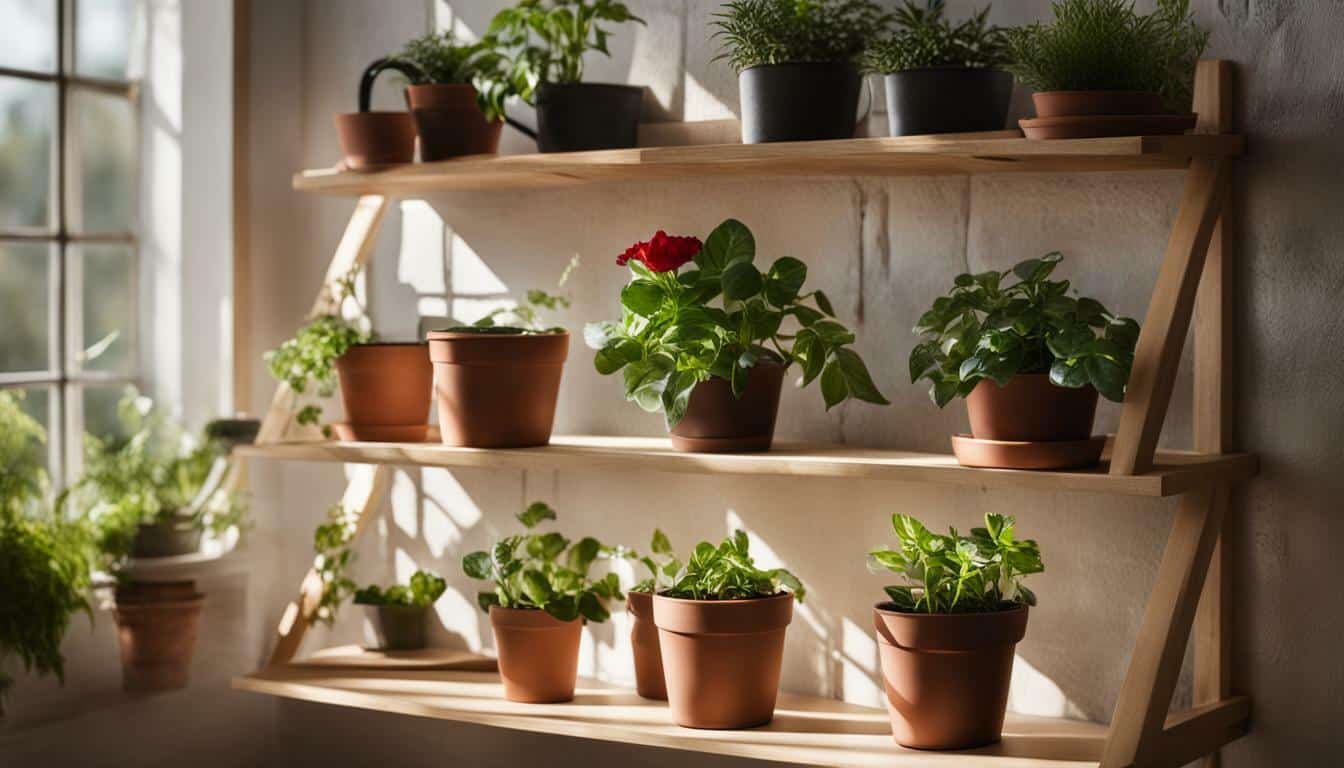
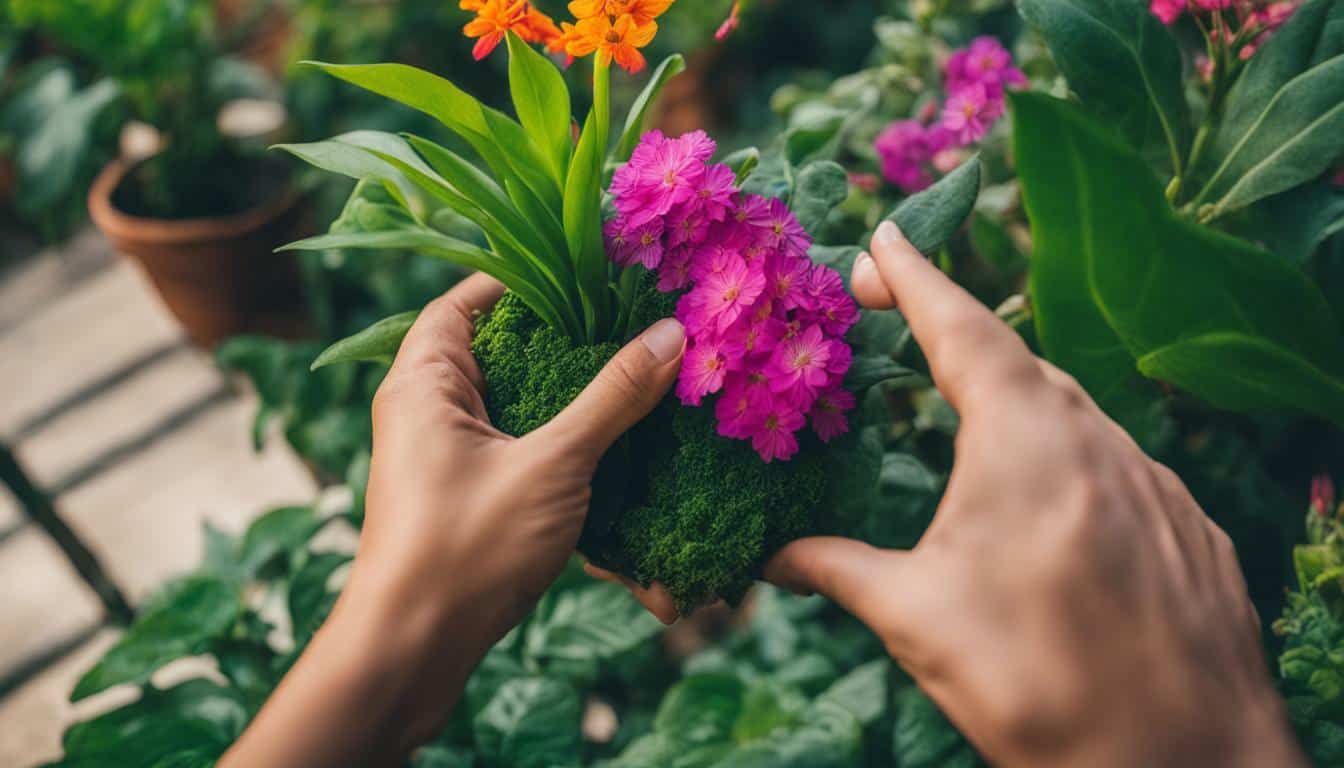
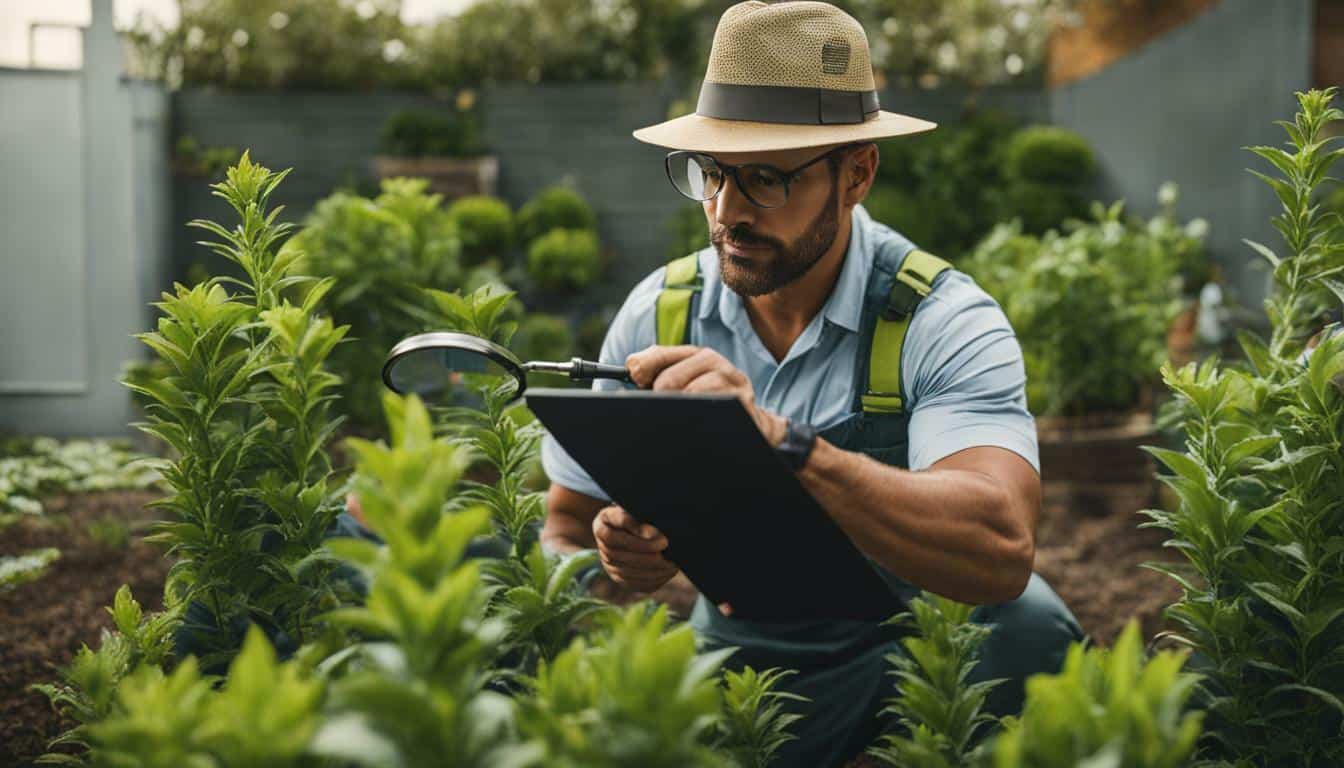

Leave a Reply